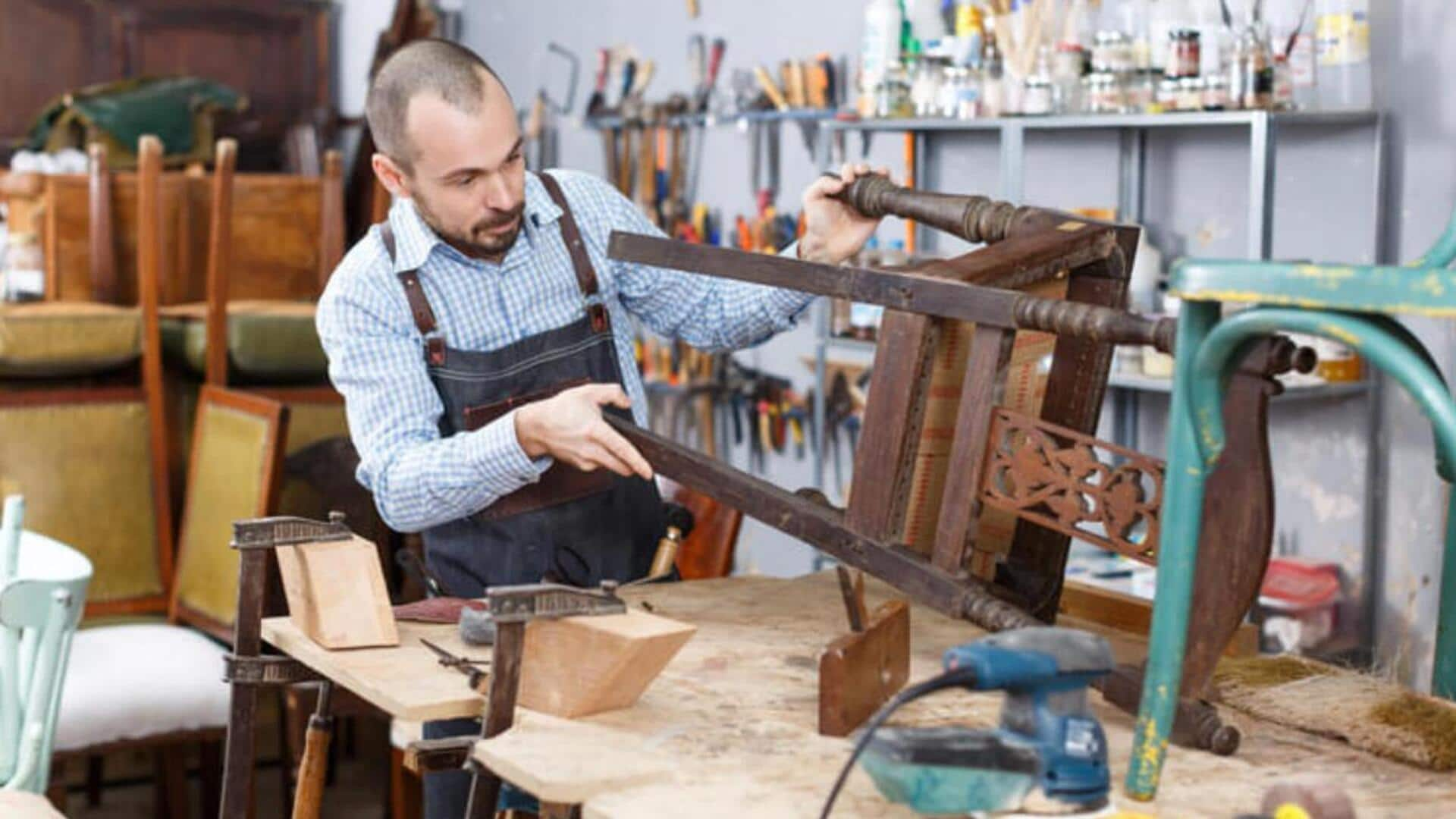
Antique restoration: A simple way to supercharge your mental wellness
What's the story
Antique restoration isn't simply reviving old stuff, it's an art and a science rolled into one.
It requires patience, precision, and a deep knowledge of materials and history.
However, the benefits of antique restoration extend beyond the tangible. This hobby can be a powerful tool for mental sharpness.
Read this article to discover how antique restoration can supercharge your brain and contribute to mental wellness.
Problem-solving
Boosts problem-solving skills
Antique restoration is a complex process that requires a high level of skill and patience.
Restorers must carefully analyze each item's condition, identify the materials required for repair, and develop a strategy to restore it without causing further damage.
This process significantly improves critical thinking and problem-solving abilities as individuals learn to address unexpected challenges with innovative solutions.
Memory boost
Improves memory and concentration
Antique restoration requires a keen memory for details about the era an item comes from.
You have to remember styles, materials, and special ways things were built back then.
By learning and using this info, your memory gets a serious workout!
Plus, focusing on tiny details during restoration helps improve your concentration.
So, if you want to boost your memory and concentration, get into the world of antiques!
Continuous learning
Encourages lifelong learning
The world of antique restoration is vast and diverse, offering a never-ending journey of discovery across centuries, cultures, and artistic styles.
Every project opens a door to a new universe of knowledge, turning restorers into lifelong learners.
This constant dance with the unknown keeps the mind sharp and the heart young, making sure restorers never stop growing.
Stress relief
Reduces stress levels
Concentrating on a physical task like antique restoration is immensely therapeutic.
The focus it demands pulls you away from everyday worries and anxieties, creating a meditative space through the rhythm of work.
Many hobbyists report that time spent on restoration projects feels calming and significantly lowers their overall stress levels.
Detail-oriented
Enhances attention to detail
Antique restoration requires a keen eye for detail.
Restorers cultivate a razor-sharp attention to detail that often spills over into everyday life, from spotting the tiniest flaws to executing delicate repairs with surgical precision.
This amplified focus can make even the most mundane tasks feel like an extension of their craft, enhancing their performance in anything that demands a meticulous touch outside the workshop.